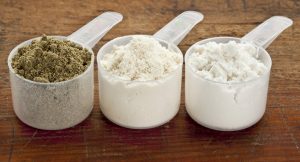Protein powder, are they good?
 An American mother has a blog (Savoylotus), in which she questions herself effectively about foods, about things that she thought good but are not, or on the contrary, things that she believed to be negligible but have proved to be effective foods for a correct diet and especially healthy. The articles by this mom blogger are very thorough, so much so that I got inspired when she talked about protein powders, discovering three baffling truths that will make us love them much less.
An American mother has a blog (Savoylotus), in which she questions herself effectively about foods, about things that she thought good but are not, or on the contrary, things that she believed to be negligible but have proved to be effective foods for a correct diet and especially healthy. The articles by this mom blogger are very thorough, so much so that I got inspired when she talked about protein powders, discovering three baffling truths that will make us love them much less.
First of all, for those who want to know more about protein powders, I refer you to this article, in which I analyzed the main ones on the market. Second of all (!), I admit that I have a big jar of protein powder at home, cocoa flavor, with which I often reinforce my breakfast.
But now, the blogger mom got me wavering, and I think she won’t buy them anymore. Not that I didn’t have any doubts about protein powders, but I was under the illusion that the advantages outweighed the disadvantages: but no. Here because.
THREE (BAD) THINGS TO KNOW ABOUT PROTEIN POWDERS
1) Taking protein powder without balancing it with other nutrients is useless:the producers of protein powders (you can see it in the description of the products) support the high assimilability of the same. That is, you eat protein powder and your body takes in proteins, assimilates them. This story of protein assimilation is a bit the weak point of any discourse on proteins, even for the quantity: much scientific literature has shown that over thirty grams of protein per meal are not assimilable, the practice on athletes has shown opposite results or in any case conflicting. However, one fact remains: powdered proteins simply dissolved in water or milk will give less results than those used in more balanced preparations, with a share of gludic substances and above all of lipids. So a smoothie with milk, a banana, a scoop of protein and two tablespoons of peanut butter will make those proteins more assimilable than a scoop dissolved in water. The latter could be downright harmful.
2) Proteins are a chemical product, processed and subjected to refining:here too we return to both the assimilation of protein powders and health. If the proteins are heavily processed and refined, they will do more harm than good just like all refined products. In addition, we must ask ourselves how much of the proteins obtained from chemical processing are recognized by our body as the same macronutrients as the real food protein resources: perhaps one steak is better than two scoops of whey. Furthermore, it is advisable to take neutral proteins and not the various flavors of vanilla, strawberry and cocoa: it is stupid to worry about the phytates of legumes and then gorge on toxic additives that by law may not be listed in these products. But there are. Aspartame, artificial colors, saccharin. And monosodium glutamate in high concentrations.
3) Do protein powders contain heavy metals? A study on protein powders highlighted contamination in virtually all brands of thinking metals: cadmium, arsenic and mercury, often beyond legal limits. To the detriment of the functionality of internal organs. The more you use protein powders, the more you are poisoning yourself.





























+ There are no comments
Add yours